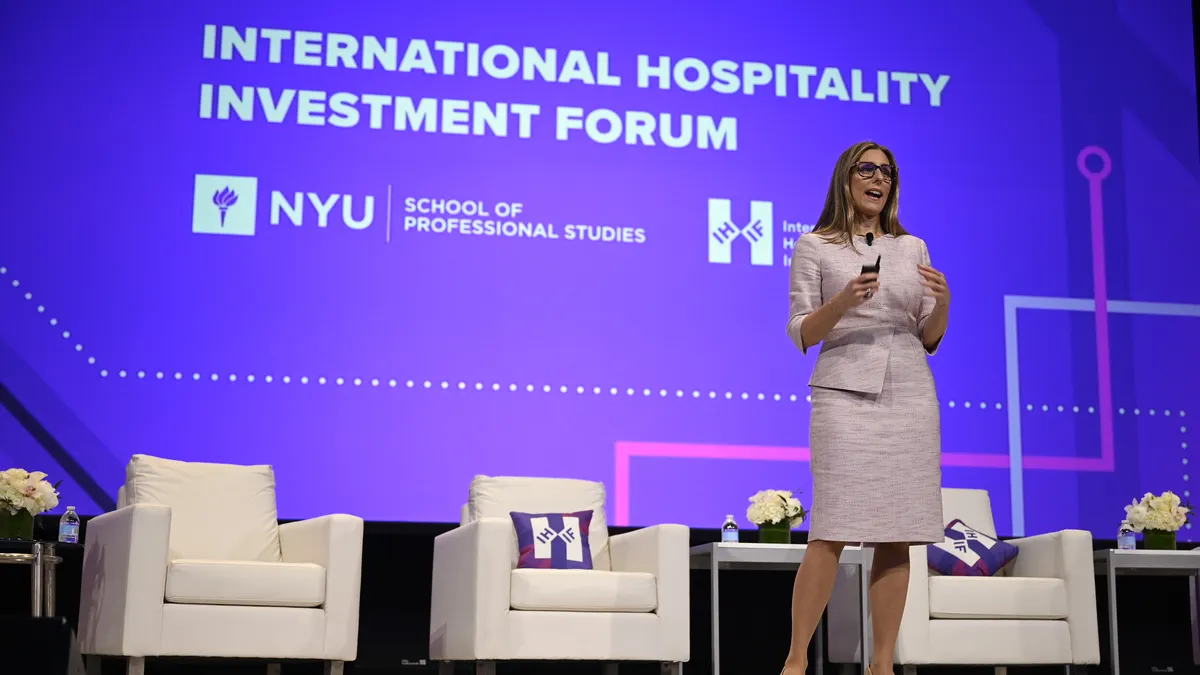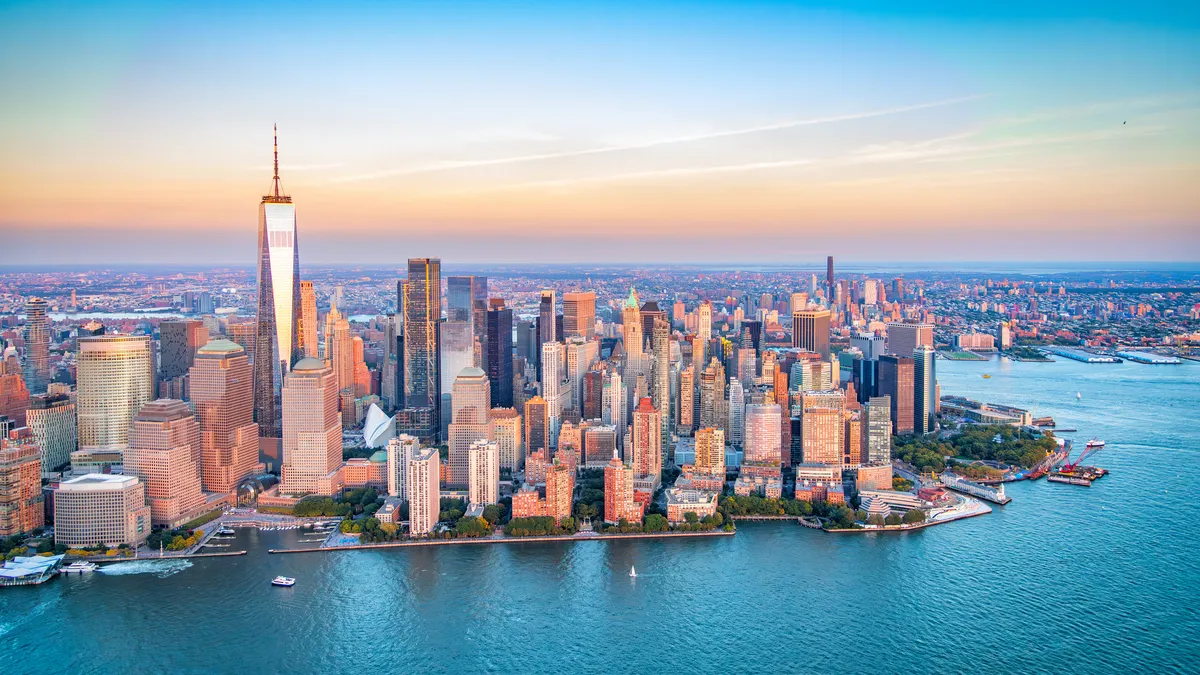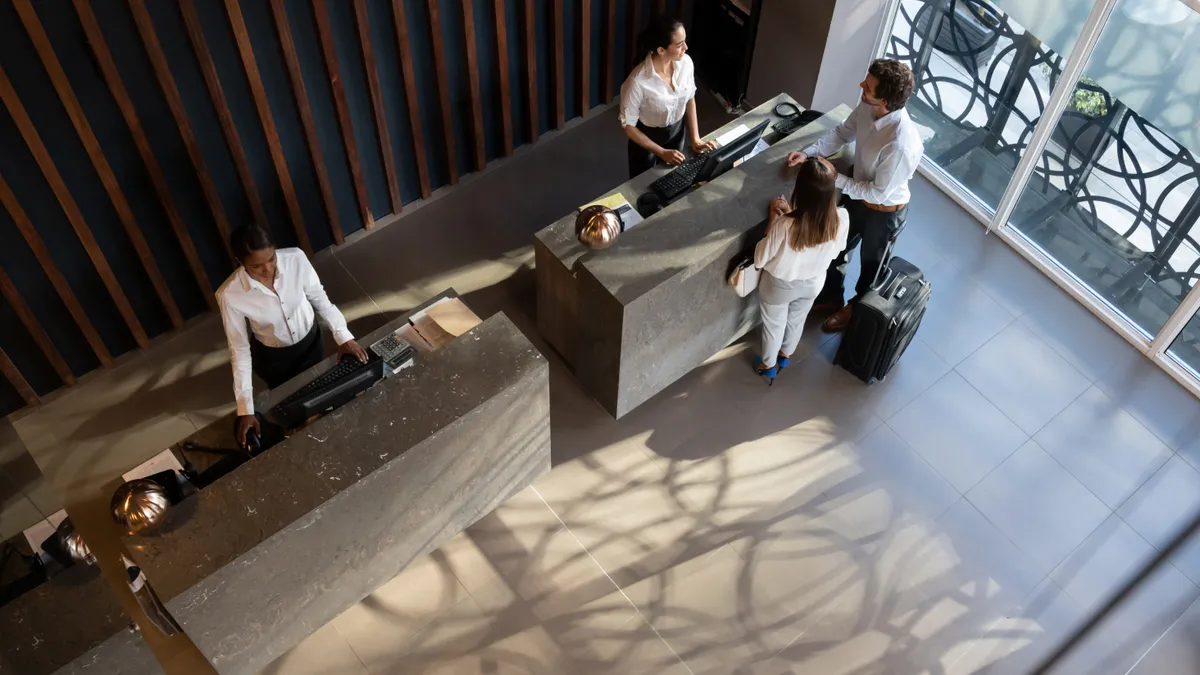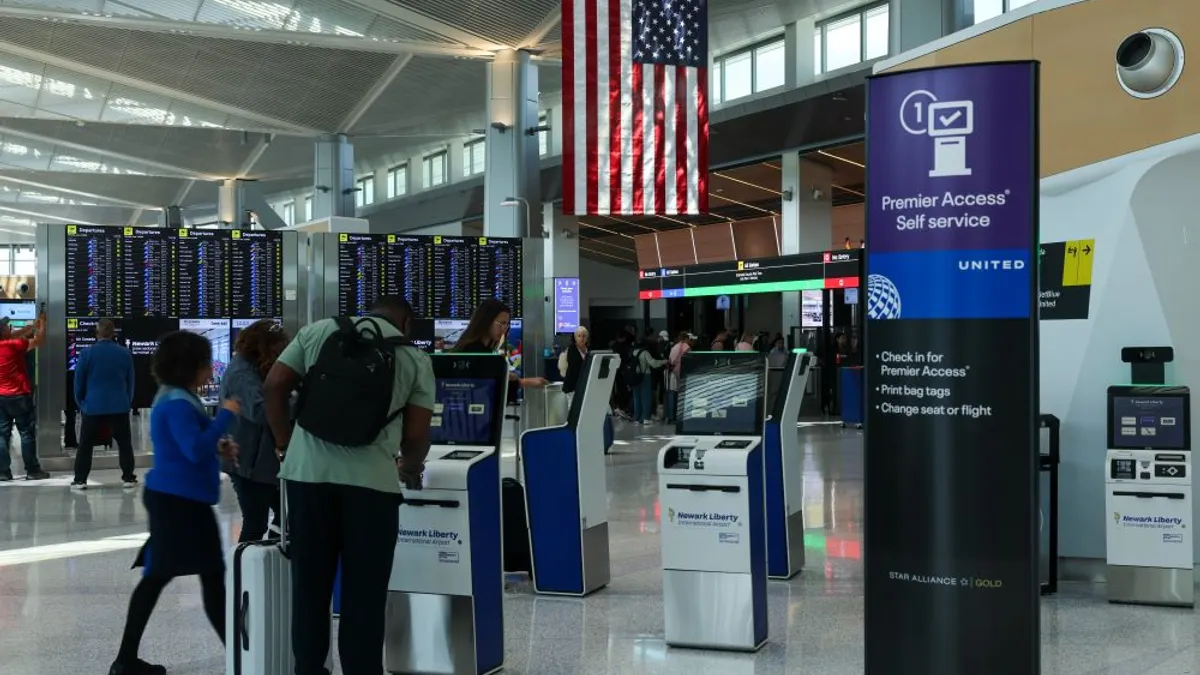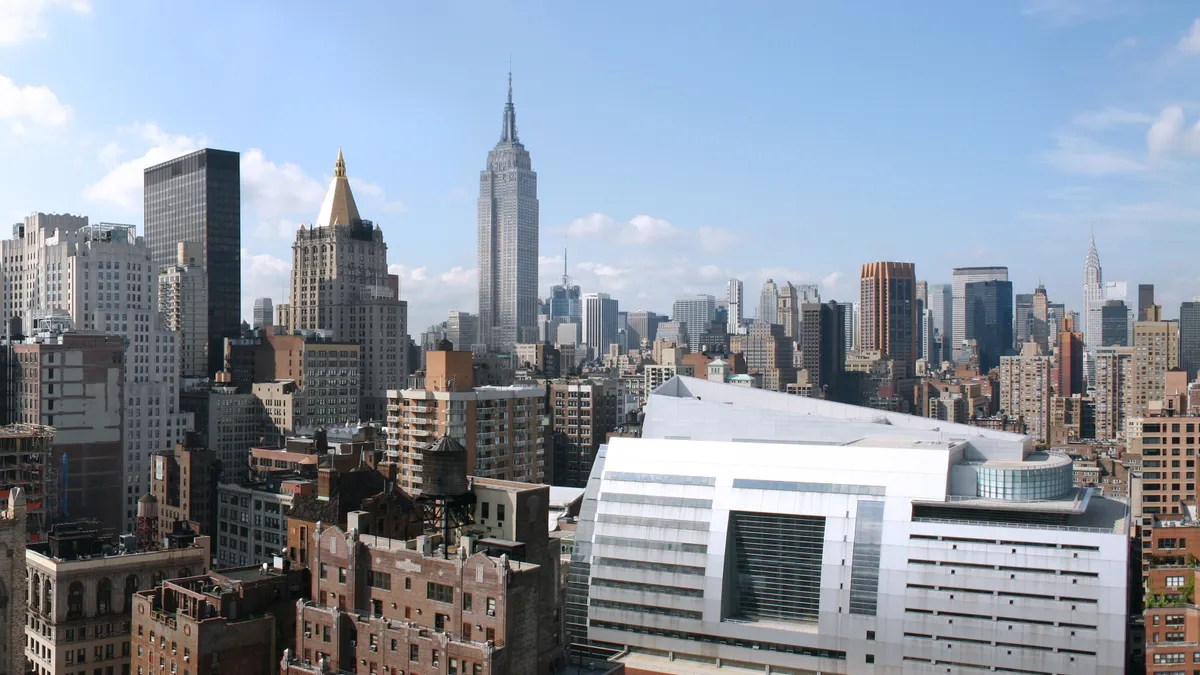NEW YORK — Recent news about dampened consumer sentiment, plummeting international arrivals and lowered hotel RevPAR forecasts hovered over this year's NYU International Hospitality Investment Forum, held last week in New York City.
The Trump administration’s ever-changing tariff policies were causing concern over economic uncertainty. The World Travel & Tourism Council had recently predicted that the U.S. would lose $12.5 billion in international visitor spending in 2025. And Tourism Economics and CoStar announced a lowering of their 2025 RevPAR growth projection from 1.8% to 1% year over year.
Nevertheless, travel industry analysts and hotel players in attendance at the event pointed to the sector’s resilience.
“People are genuinely freaked out,” said Tourism Economics President Adam Sacks onstage at the New York Marriott Marquis. “So how freaked out should we be as an industry? Well, I would offer, not particularly.”
In the talk that followed, STR President Amanda Hite echoed Sacks’ sentiment. “The headlines make it seem like things are falling off the cliff, but we do have demand growing,” she said.
Over the course of the conference, industry experts broke down economic indicators, demand trends and hotel industry projections. The following are the top takeaways for hotel leaders from the two-day event.
Dampened expectations
Consumer sentiment plunged in March on the heels of tariff announcements, according to a consumer survey by the University of Michigan. However, Sacks noted, “survey-based indicators about how people feel have increasingly, over the last several years, borne little resemblance to hard data related to how people act.”
Marriott International CEO Anthony Capuano said he’s seeing that disconnect in his business.
“If you had sat here with us a year ago and said, ‘Next year U.S. consumer confidence is going to hit a 52-year low,’ I don’t know that a lot of us would have been pounding the table about the strength of demand,” he said during a CEO panel. “So the fact that there’s such resilience and strength across our respective businesses in the face of a metric that typically would have spelled doom for travel is pretty encouraging.”
“I take consumer sentiment indicators with a grain of salt,” said Matthew Luzzetti, Deutsche Bank’s chief U.S. economist. “There was a lot of concern around the March data … but at the same time, you have these moving Easter holidays, which really impact [industry performance] data. So you actually saw a bounce back in the April data in terms of year-over-year international travel flow.”
“When we ask travelers in some of the key markets how they want to spend their discretionary income, the number one response is travel. Three out of four travelers are looking forward to that travel in 2025, and half of them are saying they expect to spend more in 2025.”

Olaf Belgraver
global head of chains, Booking.com
Tariffs, however, will still impact hotels, experts said — though the exact impact remains unknown as policies continue to change. Luzzetti noted that the economic outlook would have been dimmer if President Donald Trump had gone full speed ahead with the tariffs he announced on “Liberation Day,” but that “those risks have been substantially mitigated over the past two months.”
“As long as we are on this path toward relenting on the trade front, I think this rosy picture around the U.S. consumer can continue,” he said. “But be watchful of that story.”
Meanwhile, consumers are still prioritizing travel, and a higher percentage of Americans (53%) are planning to travel this summer and stay in paid lodging than in 2024, according to Deloitte’s summer travel survey released in May.
“When we ask travelers in some of the key markets how they want to spend their discretionary income, the number one response is travel,” said Olaf Belgraver, Booking.com’s global head of chains. “Three out of four travelers are looking forward to that travel in 2025, and half of them are saying they expect to spend more in 2025.”
Traveler behavior, however, is changing, with Belgraver pointing to more last-minute bookings.
“[Travelers] are delaying their bookings, and they also have a lot of price sensitivity,” he said.
RevPAR and room demand
Room demand across the country “has definitely been a roller coaster so far in the first five months of the year,” STR’s Hite said.
Hite noted that, as of the conference date, demand for July and August appeared to be down from 2024, but it was “not something we're raising a big red flag about right now,” due partly to travelers’ now-shortened booking windows.
“Room demand is going to face headwinds moving into the coming year,” Sacks said, adding that “the range of uncertainty is pretty drastic right now” due to changing tariff policies.
Meanwhile, Hite pointed out that while room rates have continued to grow month over month, the growth is not keeping pace with inflation.
“We do think that things will firm up,” Hite said. “But there could be a little more softness than what we have seen a year ago in the summer, just because of that slowing economy.”
Hite also noted “another uptick in labor expenses” over the past few months. Leisure and hospitality sector employment continued its upward trend in May, according to the U.S. Bureau of Labor Statistics.
Bright spots
Bifurcation continues to impact hotel performance, several industry experts noted, pointing to continued strength in the luxury segment. “Higher-class hotels are actually showing a lot more resiliency,” Booking.com’s Belgraver said.
That strength at the higher end is partially why Sacks said hoteliers should not be particularly concerned yet.
“[Economic] stress is almost entirely at the lower end of income earners, and we as an industry are over-indexed at the upper end of income earners,” he said, adding that the industry’s “backstop continues to be our higher-income, higher-net-worth travelers, and their balance sheets are really, really good.”
Group travel is still a bright spot, too, Sacks noted.
“We are seeing bookings for future events continue to grow,” he said. “The group business still has legs … but it varies by industry, and as we look at leads for new events, certainly government, public administration [sectors are] getting hit hard, followed by finance and insurance, but there are other segments that are showing continued growth.”
In the first quarter of 2025, group and business travel continued to grow at a healthy pace across the U.S., according to Cendyn and Amadeus’ Hospitality Group and Business Performance Index, released in May.
Noble Investment Group CEO Mit Shah affirmed that hotels’ future outlook isn’t all bad.
“[Travelers] are spending more money on experiences. They're spending more money on travel. And now we've got flexibility in terms of where they can work from,” Shah said. “So when you add all those things together against the supply backdrop — which is real and I think is an enabler for future growth — there's long-term pricing power in that. … Obviously, nobody likes uncertainty, but we do believe that that business is sticky.”


